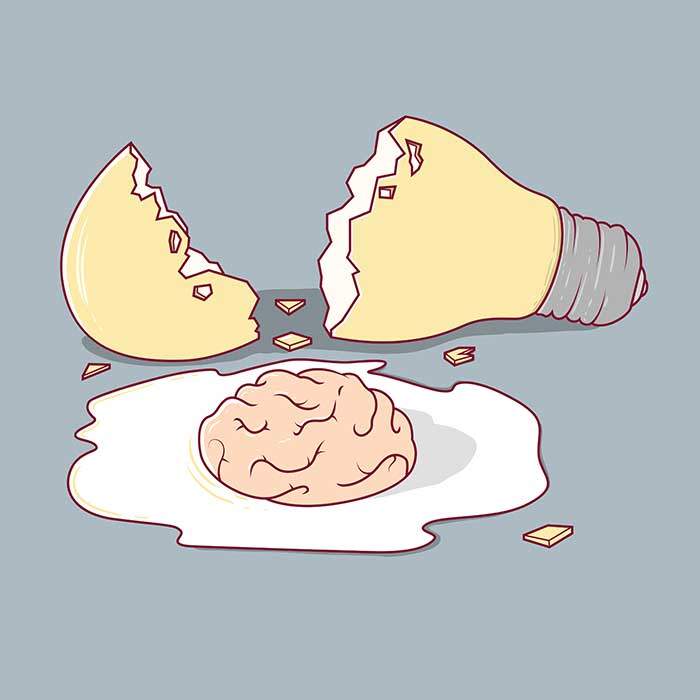How to discover my talent? 5 keys to detect your skills

- 2690
- 794
- Austin Stokes
We have all come to this life to contribute something to the world, although sometimes we do not know what is exactly.
Discovering our talent can be of great help to choose the career or employment that will be our future.
Ken Robinson in his book "The Element" speaks of finding that space where the things you like to do converge and those that are good for you. The element is the key to meeting between natural skills and your personal inclinations. Therefore, it is important to keep in mind that for discover your talent you have to know what your passion is.
Know how to discover your talent need introspection, see what happens and with what time flying. In these lines we will teach you to detect your hidden strengths.
Content
Toggle- How to discover my talent?
- Discovering what your skills and strengths are
- 1. What amuses you?
- 2. What are your interests and hobbies?
- 3. What makes time fly by flying?
- 4. What is easy for you to do?
- 5. Who you admire?
- Bibliographic references
How to discover my talent?
Many of our strengths can remain hidden throughout life because we do not give sufficient value to a skill or capacity. It may also happen that we think that what is good for us is not so much, or we believe that everyone does it as good and therefore it is not worth considering as a talent.
The reality is That may be what differentiates us from others, something that we are not yet aware. That is why, before talking about how to discover our talent, we must understand what we mean. Talent defines one or several capacities that a person possesses but has failed to discover them and develop them to perform or exercise physical activity.
Howard Gardner's multiple intelligence model
Each person has different skills and skills to perform specific tasks or activities. We can talk about innate talents and talents acquired. Innate are those we have since we were born or at a very early age, this type of talents is reflected in the childhood of the individual, especially when a child is applying skills that no one has taught or that has acquired very easily.
While the acquired talents are those Competencies that a person develops throughout his life, through learning and continued practice.
Discovering what your skills and strengths are
There are no people who do not have any talent. It is normal that we do not realize what are. But, even if it is common, Not knowing what your talents are can be a bad play against you, especially when the age of deciding what you want to do is approaching.

It is conclusive to know what your talents are, since Not doing so, you won't know what to do. You will not find your vocation and you will risk having to accept any work that could be very frustrating for you.
Luckily, it's never too late to discover our qualities. Knowing our skills will require a certain effort and a thorough introspection. To help you discover what your talents are, try to answer the following questions:
1. What amuses you?
We know that people love those things that are good. In psychology this has an explanation. When an individual is slow in something, he receives a negative reaction from others. If they insist on telling him that something is wrong, the person will end up losing interest in that activity.
Otherwise it happens when something is perfectly well, here they will end up recognizing the achievements of that person. So you will strive and put all your effort into that activity that is helping you improve your self -esteem. Therefore, it is recommended that a person must make a Introspection about what he likes to do, in this way he will know the first clues about his talents.
2. What are your interests and hobbies?
Having interest and hobbies does not always imply having a talent for them. That is why a Reflection on interests and affinities to those who dedicate free time.
Leisure activities can give clues about the type of profession that the person could perform. That is why, it must be asked: "They are group or solo activities", "you need communication with people or rather think and analyze". These types of questions will give an idea that if the person is more comfortable in a job that demands contact with others or if on the contrary he works better only on things that require concentration and silence.
3. What makes time fly by flying?
When we do something we don't like, time passes super slow. Heavy and tedious activities cause us to have the feeling that time barely progresses. But when the things we do we love and make us happy, time flies.

This perception of time is what can tell us if something is our vocation. We must reflect and think about those activities in which you notice that time passes too fast when you are doing them and you do not see how obligations but as hobbies. Remember that when we put our talents into practice, we tend to lose the notion of time and this is due to how good we spend what we like.
4. What is easy for you to do?
Ease is a clue to know what our talents are. And this consists in paying attention to those tasks or activities that are easier than others. For example, if it is difficult for us to remember name from countries and their capitals are not ours. But if you quickly solve mathematical problems using only the mind, this means that the calculation is one of our talents.
5. Who you admire?
Many times we tend to admire other people with whom we feel identified. Through this exercise, you should try to find out why that person is so interesting. What qualities do you have?, What do you do for a living?, What are the features of your personality?
Thanks to the self -knowledge and information that nearby people transmit, you can take stock between what are the innate talents and those who want to acquire. The next step is to know how to exploit them with it enjoying the learning process.
Multiple Intelligences Test
Bibliographic references
- https: // www.Mtu.EDU/CEGE/PEOPLE/FACULY-STAFF/FACULY/WATKINS/
- https: // www.Redalyc.Org/PDF/206/20606008.PDF

